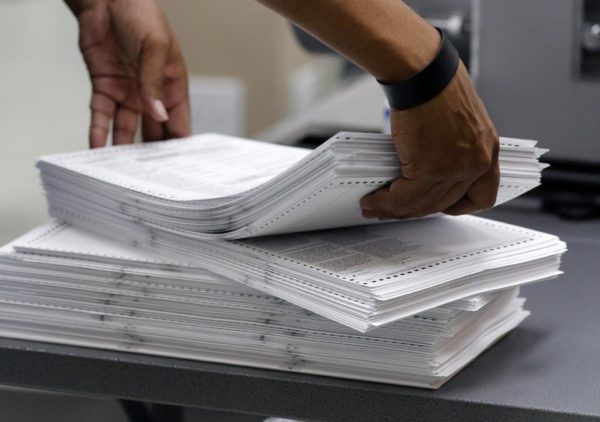In political jargon, an “October surprise” refers to a game-changing event that can irreparably damage one candidate’s chances and boost the other’s. It can come in the form of a calculated political attack — still a “surprise” to the public and the candidate it’s brought against — or something unplanned that can critically change the course of an election.
But as the examples below show, such events don’t always necessarily alter an election’s outcome.
The term “October surprise” wasn’t initially political, according to Merriam-Webster. In the early 20th century, an October surprise advertised in a newspaper signified department store clothing sale that fell during autumn.
The term took on a political meaning during the 1980 presidential election,when it was first used by William Casey, Ronald Reagan’s campaign manager, according to Smithsonian Magazine.
That year, Reagan was facing President Jimmy Carter, and the overarching headline all year was the continuing Iran hostage crisis, when a group of Iranian students stormed the US Embassy in Tehran and took a group of Americans hostage.
Reagan’s campaign feared that Carter would announce a breakthrough in negotiations right before Election Day.
According to Smithsonian Magazine, Reagan and his campaign staff wanted to preempt such a late-stage victory in the polls — an “October surprise.”
“The biggest fear in Ronald Reagan’s inner circle is that President Carter will get an unexpected boost in the campaign from an ‘October Surprise,'” the Washington Post wrote at the time.
Reagan won the election, and minutes after he was inaugurated in January 1981, the Iranian government freed American hostages who’d been held in Tehran for over a year, the magazine reported.
Other notable ‘October surprises’
The real controversy of the 2000 presidential election obviously occurred after Election Day, when a recount battle lasted a grueling 36 days. But a report about Republican nominee George W. Bush’s arrest for drunk-driving in the 1970s threw a wrench in his campaign close to the election. He apologized. (That year, Bush lost the popular vote and became president because of a Supreme Court decision.)
In 2016, it seemed like every event that could constitute an “October surprise” revolved around Trump — less than a month before the election, the Washington Post published the 2005 video of Trump discussing grabbing women by their genitals and the New York Times reported he likely avoided paying federal taxes for nearly two decades.
But when the FBI reopened an investigation into Democratic nominee Hillary Clinton’s staff and their use of a private email server, Washington Post reporter Devlin Barrett argues in the book “October Surprise,” the agency “cost her the race.”
A number of surprises in 2020
It’s difficult to pinpoint just one event leading up to the election that could constitute 2020’s October surprise — this year has been one of the most turbulent in American history.
Last month, pundits believed Ruth Bader Ginsburg’s death might’ve been an early October surprise. While it jolted Republicans to quickly nominate a new conservative Supreme Court justice and inflamed liberals who idolized her, her death was followed — and in the media, overshadowed — by other explosive stories.
In the last week, the New York Times’ reported that Trump paid $750 in federal income taxes in his first year as president.
Then on Tuesday, Trump and Biden squared off in a chaotic presidential debate that featured a bullish performance from Trump and saw him again refuse to condemn white supremacists.
On Thursday night, recordings of Melania Trump complaining about the public’s view of her in light of child separation in ICE camps were released, just hours before the President tweeted that he and the first lady had tested positive for coronavirus.
The latest news is destabilizing. The 74-year-old Trump falls within the highest risk groups for severe infection because of his age and weight, though he’s cagey about revealing details about his health. And after months of attempting to downplay the pandemic that’s killed more than 200,000 Americans, Trump now faces the most serious health threat to a sitting US president since Reagan was shot in 1981.
The virus may also threaten the health of Democratic presidential nominee Joe Biden, 77, who faced Trump several feet apart during Tuesday’s debate.
The election is one month away, and there’s still time for surprises to supersede even Trump’s diagnosis.


